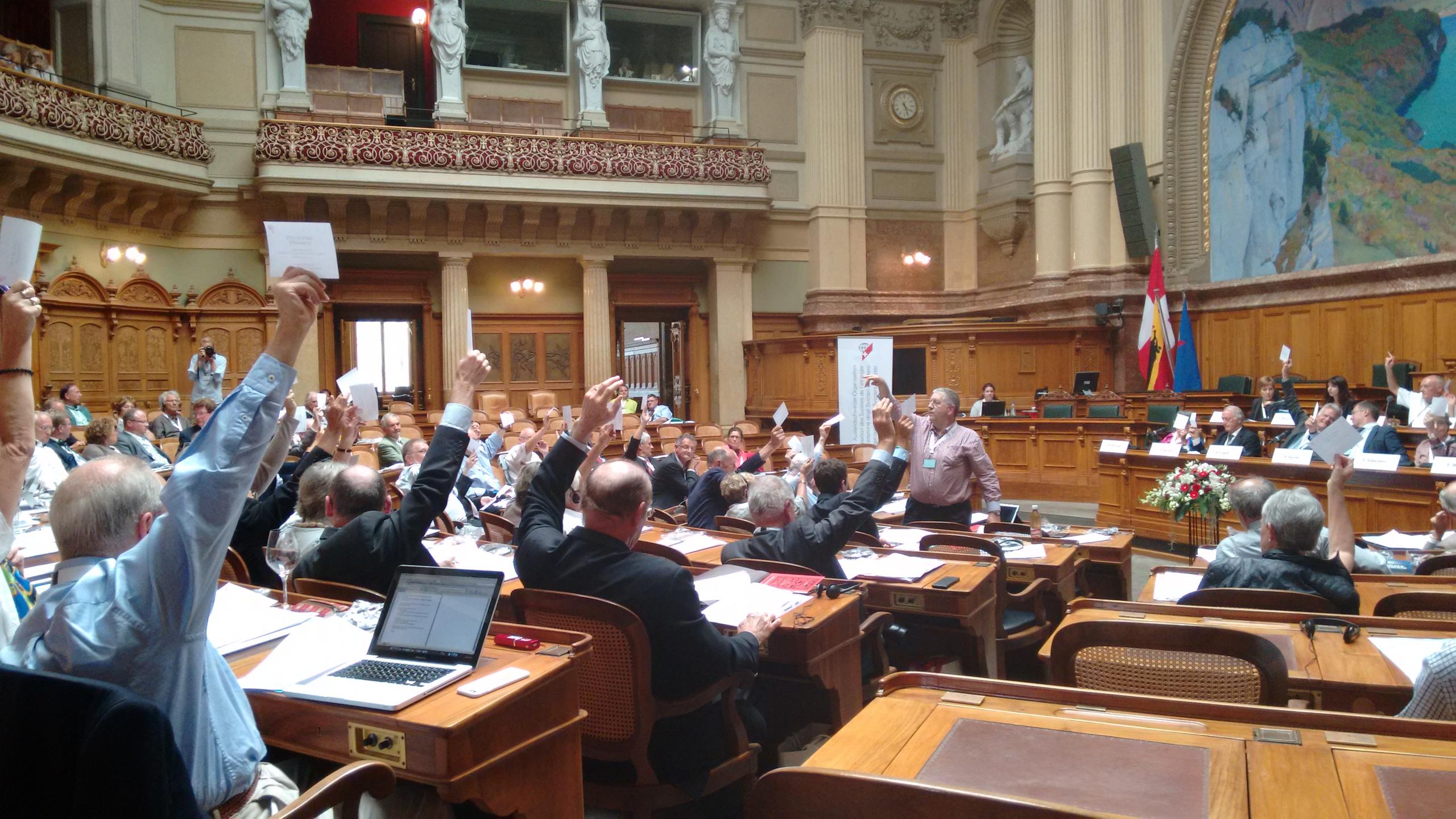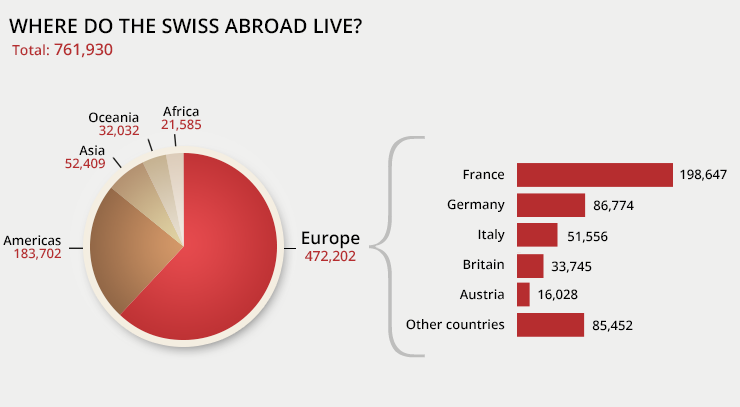
Expats push for e-voting and electoral reform

The Council of the Swiss Abroad (CSA) has decided to broaden its electorate and boost the younger generation. The assembly also served as an occasion for repeated calls on the government and the cantons to introduce electronic voting for all Swiss expats by 2019.
The 140 member assembly, meeting in the Swiss parliament on Friday, agreed to allow Swiss abroad communities in their countries to extend its electorate. The one-day session took place ahead of the annual Congress of the Swiss Abroad in Bern over the weekend.
Following protracted discussions, the delegates voted for a proposal to grant expats, who are not members of Swiss clubs or associations, the right to take part in elections for the Council.
Opponents argued the move would deprive the more than 700 Swiss clubs around the world of their power.
Matthias Zimmermann, delegate from Germany, repeatedly warned that any easing of rules went against existing rules.
“Swiss clubs and associations have an exclusive right to choose the delegates of the Council. Anything else is against the law,” he said.
Others said it would be too complicated to organise free elections among the Swiss abroad community which is often seen as lacking interest.

Legitimacy
However, the Council’s leading committee argued that broadening the potential electorate could help improve the legitimacy of the body, as only about 4% of expats are members the Swiss clubs .
Remo Gysin, president of the now 100-year-old Organisation of the Swiss Abroad, tried to encourage the delegates to follow the example of the expat communities in Britain and Belgium.
“They can serve as models for communities in other countries,” he said.
Both communities introduced a mixed system, where delegates are partly elected by Swiss associations but also by other registered Swiss citizens abroad.
In a move to rejuvenate the assembly, delegates on Friday also decided to increase the minimum number of representatives from youth organisations from one to three.
“It’s a small step but important step,” commented Gysin. He also congratulated the Swiss expat community in Italy for its successful efforts to attract young members.
E-voting
Council members also heard a panel discussion on the promotion of electronic voting. The government last year blocked the use of one of three different technical systems, quoting security issues.
Foreign Minister Didier Burkhalter praised expats around the world for their unofficial role as “ambassadors” for Switzerland.
“Thank you for what you have done during a whole century for our country,” he told the audience at the beginning of the anniversary festivities on Parliament Square on Friday.
He singled out the young generation of Swiss Abroad. “Young, young people, you are the most important persons. You are a great part of the future of our country,” he said in a speech he gave in German, French and English.
The decision meant that eight cantons could no longer offer e-voting to their citizens living abroad. Before, 13 cantons, – accounting for about half of the potential Swiss abroad electorate – were allowed to cast their ballot online.
While the Federal Chancellor, Walter Thurnherr defended the government’s move, the co-director of the OSA, Ariane Rustichelli, called on the cantons to increase their efforts, giving all registered Swiss expats the possibility to use the internet for the 2019 parliamentary elections.
Trials with e-voting began in 2000 under the auspices of the federal authorities. Cantons such as Geneva, Neuchâtel and Basel City are among the pioneers.
Promoters of e-voting argue that some Swiss expats have no possibility to exercise their direct democratic rights as the postal delivery of the ballot papers is not reliable enough in some countries.
But there are also concerns that some online voting systems lack the necessary verification safeguards.
By the end of last year, some 142,000 Swiss expats had registered to take part in votes and elections in Switzerland.

The Swiss Abroad Council
The 140-member assembly is part of the Swiss Abroad Organisation (OSA) and meets twice a year.
It is made up of representatives of Swiss clubs and associations abroad and of members of domestic institutions, including swissinfo.ch.
The assembly represents the interests of the more than 760,000 Swiss expatriates before the authorities and public opinion in Switzerland.

In compliance with the JTI standards
More: SWI swissinfo.ch certified by the Journalism Trust Initiative


























You can find an overview of ongoing debates with our journalists here . Please join us!
If you want to start a conversation about a topic raised in this article or want to report factual errors, email us at english@swissinfo.ch.